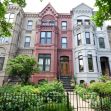On December 11, 2020, the U.S. Justice Department filed a lawsuit against J. Randolph Parry Architects and eight owners of multifamily properties that were designed by the architectural firm.
The lawsuit alleges that both the architectural firm and the property owners violated the Americans with Disabilities Act (ADA). And in doing so, the defendants also violated the Fair Housing Act (FHA).
The multifamily properties in question are all on the East Coast, with a majority located in Pennsylvania and the others in New Jersey, Virginia, and Connecticut. The 15 properties that were designed by the same architect firm are under scrutiny because they were built without regard to those with disabilities, despite the fact that they are marketed as senior living properties.
The multi-family units at the center of the lawsuit include:
- Traditions of Hanover, Bethlehem, Pennsylvania
- Traditions of Hershey, Palmyra, Pennsylvania
- Chestnut Knoll, Boyertown, Pennsylvania
- Arbour Square, Harleysville, Pennsylvania
- Cedar Views Apartments, Philadelphia, Pennsylvania
- The Birches, Newtown, Pennsylvania
- The Lifequest Nursing Center Addition, Quakertown, Pennsylvania
- Keystone Villa, Douglasville, Pennsylvania
- Alcoeur Gardens, Brick Township, New Jersey
- Alcoeur Gardens, Toms River, New Jersey
- Church Hill Village, Newtown, Connecticut
- Heritage Green, Mechanicsville, Virginia
- Homestead, Hamilton Township, New Jersey
- The Villa Rafaella Addition, Pleasantville, New Jersey
- Woodbury Mews Colonial House, Woodbury, New Jersey
The properties in question lack a range of accessibility features, including the lack of outdoor accessibility barriers and the lack of accessible pedestrian routes into the building. Inside the multifamily units, A multitude of accessibility barriers exist on the properties, such as inadequate accessibility from apartment units to other amenities in the building, and those with wheelchairs are unable to navigate the narrow doors, access bathrooms and kitchens, or access necessary controls like light switches, thermostats, and other environmental controls.
Though the buildings clearly violate the ADA, the lack of accessibility features is a violation of the FHA because the act stipulates that there should be no discrimination in housing based on disability, as well as race, color, religion, national origin, sex, or familial status.
As Assistant Attorney General Eric Dreiband of the Civil Rights Division explains, “The Fair Housing Act and the Americans with Disabilities Act have been the law for more than a quarter-century, and there is no excuse for owners and architects to continue developing properties that fail to comply with the accessibility requirements of these statutes. This flagrant disregard of federal law must stop, and stop now. We will hold accountable those who ignore their legal obligations to design and construct multi-family housing to be accessible to people with disabilities.”
The government maintains that the architectural firm along with the owners of the properties must take three steps to remedy the situation,
- Bring the properties up to the standards of the FHA and ADA guidelines
- Pay monetary damages to any individual who is negatively impacted by the lack of accessibility as well as pay civil penalties to the U.S. in order to vindicate all others who were impacted
- Stop designing or constructing further buildings that do not comply with FHA or ADA rules
National Violations of FHA
Unfortunately, violations of the FHA continue to happen all around the nation. During 2018 there were 7,912 violations of FHA, and 2019 saw just a few cases less at 7,801 violations. In both years, African Americans and those with disabilities were the main individuals impacted by the FHA violations.
In 2018, 4,803 claims were filed based on disability, and 1,763 claims were filed alleging discrimination against African Americans.
In 2019, those numbers remained stable as there were 4,848 cases filed on a disability basis, and 1,585 filed on behalf of discrimination against African Americans.
Both the FHA and ADA were enacted to help all Americans have access to fair housing. In the case of J. Randolph Parry Architects and the eight property owners, their violations stem from the requirement that all multi-family homes constructed after March 13, 1991, need to accommodate for reasonable access within the unit.
The ADA, which went into effect in 1990, stipulates that along with multifamily units, offices and all public facilities need to have reasonable and basic accessibility features in order to accommodate those with special needs.
The Justice Department is still gathering information on the lack of accessibility in these buildings. According to the complaint filed, anyone with additional information on the inaccessibility conditions of the 15 properties should contact the Justice Department at 1-833-591-0291 or send an email to fairhousing@usdoj.gov. A report or complaint can also be submitted online at civilrights.justice.gov.






